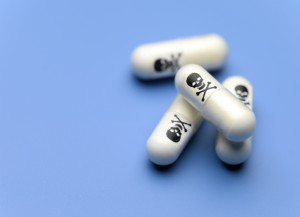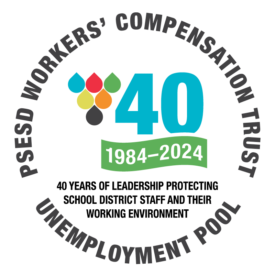Date/Time
Date(s) - Mar 15, 2020 - Mar 22, 2020
All Day
Categories
You may be surprised to learn that, according to the Centers for Disease Control and Prevention (CDC), poisoning is the leading cause of injury death in the U.S.

Every year, we recognize the third week in March as National Poison Prevention Week, in order to raise awareness about the risk of poisonings and how they may be prevented.
Several organizations, including PoisonPrevention.org, have information and other tips available to help schools prevent poisonings, including the flyer, “50 Plus Ways to Prevent Poisonings.”
Tips to Prevent Poisonings
When you think of poisons, industrial and laboratory chemicals may be some of the first items to spring to mind. However, these are not the only items that may be poisonous. So can quite a few “household” type or cleaning products found under sinks, in cleaning closets, shops, and art areas. It is important to also take note that poisons can enter and harm our bodies through inhalation, ingestion, or skin contact. Keep in mind, “dose makes the poison.” The more concentrated a chemical and the more of it gets in our body, the higher the chances that it can hurt us.
Here are a few tips from the references above that districts can follow to prevent poisonings:
For classrooms:
- Keep cleaning products in their original container with their original label intact. Use only district-purchased products and follow instructions on the label.
- Secure all cleaning product containers immediately after use and store them out of children’s reach — not under the sink!
- Close containers if interrupted during use. Many incidents happen when adults are distracted while using chemical products.
For Maintenance and Operations:
- Wear protective clothing, including long-sleeved shirts, long pants, socks, shoes and gloves, when spraying pesticides and other chemicals. Pesticides can be absorbed through the skin and can be extremely poisonous, if not used in accordance with label directions.
For everyone:
- Minimize all chemical exposures by all routes of entry: never sniff containers, protect your skin, and never taste chemicals.
- Always read and follow label instructions.
- Carefully wash hands immediately after using any chemicals and before eating or drinking
- Keep chemicals and food items carefully separated.
Here to Help
The Puget Sound Workers’ Compensation Trust has many resources available to our districts to safely manage hazardous chemicals and other substances used in schools.
- We have prepared a handout, Hazardous Chemical Management in Schools to assist our districts in keeping science labs safe and properly managing the chemicals used in them.
- The Trust also has a flyer, New Globally Harmonized System (GHS) Hazard Communication Standard that outlines the changes to chemical safety data sheets, pictograms, and labeling to conform to the new Globally Harmonized System (GHS).
- Schools also have valuable training available to them via SafeSchools, including “Hazard Communications: Right to Understand,” and “Safety Data Sheets.”
If you have any questions about any of these topics, please contact our industrial hygiene consultant, Elizabeth Jakab.
